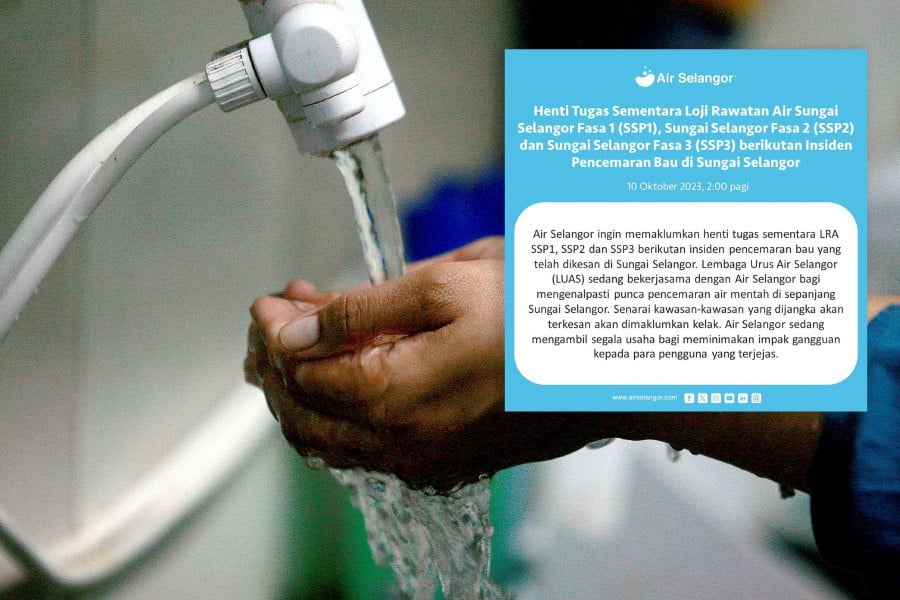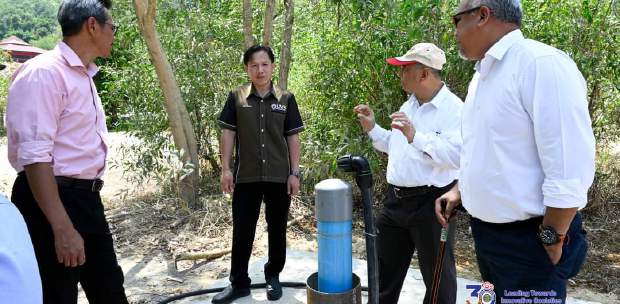WATER has become a contentious issue as the world pursues sustainability.
Conflicts over water have occurred in many parts of the world. In regions where countries share water sources, the conflicts have become full-blown political crises.
As global warming heightens, such disputes are expected to worsen.
The situation will be exacerbated by rising water pollution. Not to mention the rampant destruction of water catchment areas.
Technology plays a strategic role as the world navigates the many issues in the water sector. Investments in water research are crucial.
Planning is necessary as funding for water research increases. Malaysia has to think of a robust stand-alone water research policy to support planning.
In a recent study, we found that most countries do not have a stand-alone policy on water research.
Most times the policy is embedded in the country's larger water strategy. Cases of duplication have become unavoidable.
A survey of water stakeholders in the country confirms that many are supportive of a clear policy on water research.
In developing such a policy, it is important to consider aspects related to water management, conservation and sustainability.
Our research team has developed content for such a policy. The policy document should start with an overview of the importance of water resources and the need for research and policy development.
The information may focus on the many water challenges that we confront, including scarcity, pollution and climate change.
The policy should clearly define the objectives' overarching aspects such as sustainable water management, improved water quality and enhanced water security.
There must be discussion on research priorities, identifying specific areas and topics that align with the policy objectives, such as water governance, water conservation technologies, water quality monitoring, and ecosystem-based approaches to water management.
The policy must outline mechanisms for allocating research funding, including government grants, public-private partnerships, and collaborations among research institutions.
The policy must also emphasise the importance of robust data collection and monitoring systems to support evidence-based decision-making.
In this regard, the policy must promote the use of advanced technologies and data analytics.

Collaborations and partnerships are paramount, especially between academia, research institutions, government agencies and other stakeholders to foster interdisciplinary research and the exchange of knowledge.
Capacity-building and education are the other important elements. These are executed by supporting training programmes, scholarships and academic initiatives.
The policy must be subjected to regular evaluation. Mechanisms must be established to monitor its effectiveness.
Regularly review the policy to incorporate new scientific advancements, address emerging water challenges, and adapt to changing societal needs.
Of course, the policy is incomplete if it does not highlight ethical practices, including integrity, transparency and respect for indigenous knowledge and cultural perspectives.
Clearly, it is important to tailor the substance of the water research policy to the specific context and needs of the country.
The authorities should engage with stakeholders, experts and policymakers to ensure the policy addresses the unique water challenges and opportunities.
The Energy and Natural Resources Ministry is best suited for this task.
The writer is a professor at the Tan Sri Omar Centre for STI Policy, UCSI University





